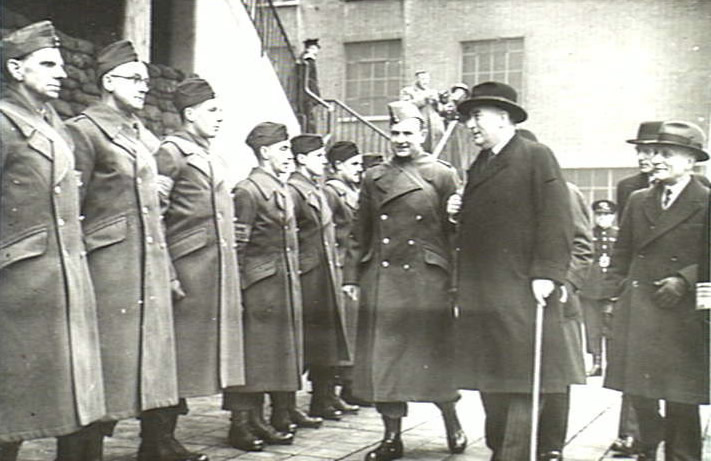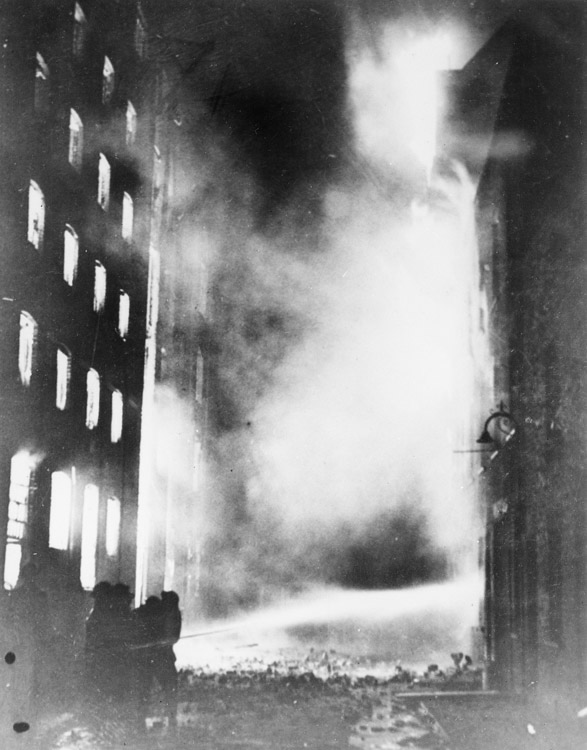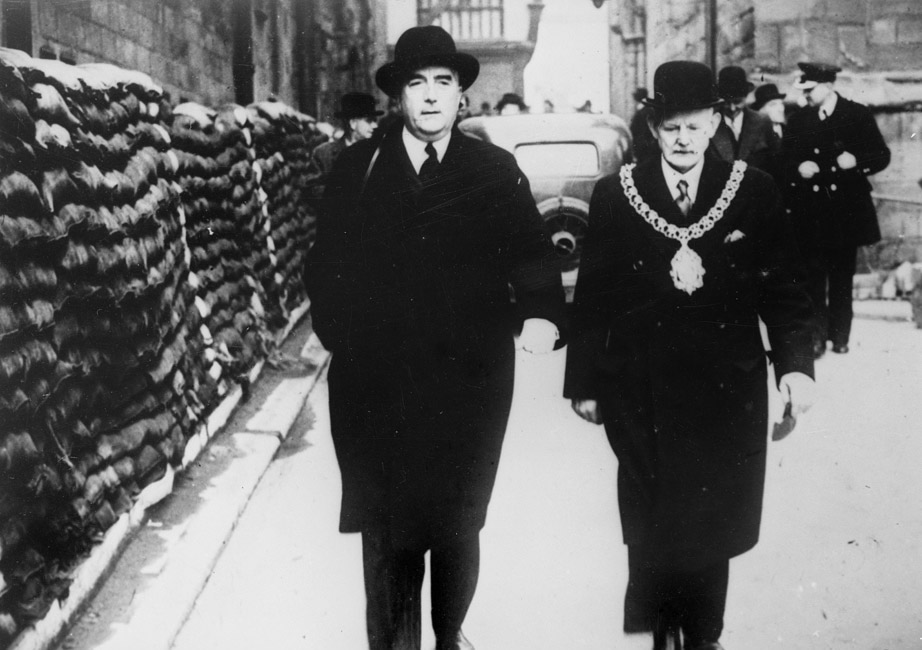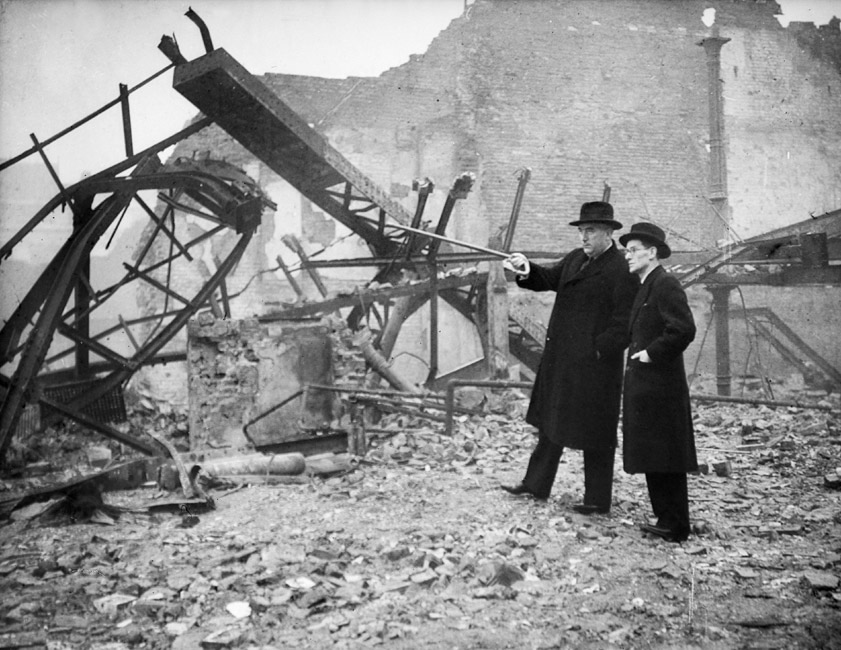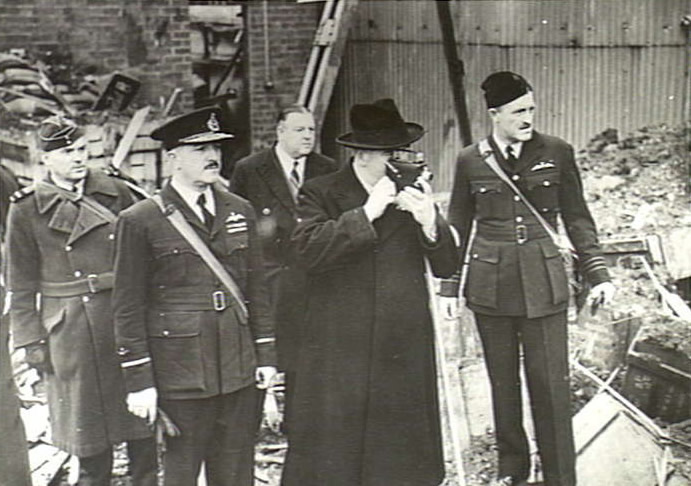21 February
London, EnglandUp to London. Snow still lying. First type of balloon barrage–silvery looking “blimps” a few thousand feet up. Not in rows, but singly or in small groups.
So to the Dorchester, where, on the 1st floor, I have the suite which was occupied by Wendell Willkie 1. As the building is modern and there are seven floors above me, it is considered as good as an air raid shelter. Curtains are closely drawn at sunset: the windows are coated with some anti-shatter mixture. Day raids have for the time been practically discontinued, and the street traffic on the way to the Dept of Information (London University) and Australia House seemed almost normal.
So far I have seen only a few bombed places, including the house in Piccadilly where the Duke of York lived. Sandbags everywhere; barbed wire; the front (to the Mall) of Carlton House Terrace rather battered; King Charles at Charing Cross in a corrugated iron container; police in tin hats; not many people carrying their gas masks; AIR RAID SHELTER, or AIR RAID TRENCHES signs everywhere; windows bricked or boarded up. At Information Dept I have a guard of Honour of the Home Guard (who work in offices and do their stuff as guards so many nights a week!) and some Australians still left here
At Australia House, meet the whole staff and thank them for prompt and devoted work. This timely and much appreciated.

